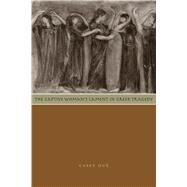The Captive Woman's Lament in Greek Tragedy
, by Due, Casey- ISBN: 9780292722187 | 0292722184
- Cover: Paperback
- Copyright: 8/1/2009
The laments of captive women found in extant Athenian tragedy constitute a fundamentally subversive aspect of Greek drama. In performances supported by and intended for the male citizens of Athens, the songs of the captive women at the Dionysia gave a voice to classes who otherwise would have been marginalized and silenced in Athenian society: women, foreigners, and the enslaved.The Captive Woman's Lament in Greek Tragedyaddresses the possible meanings ancient audiences might have attached to these songs. Casey Dueacute; challenges long-held assumptions about the opposition between Greeks and barbarians in Greek thought by suggesting that, in viewing the plight of the captive women, Athenian audiences extended pity to those least like themselves. Dueacute; asserts that tragic playwrights often used the lament to create an empathetic link that blurred the line between Greek and barbarian. After a brief overview of the role of lamentation in both modern and classical traditions, Dueacute; focuses on the dramatic portrayal of women captured in the Trojan War, tracing their portrayal through time from the Homeric epics to Euripides' Athenian stage. The author shows how these laments evolved in their significance with the growth of the Athenian Empire. She concludes that while the Athenian polis may have created a merciless empire outside the theatre, inside the theatre they found themselves confronted by the essential similarities between themselves and those they sought to conquer.






